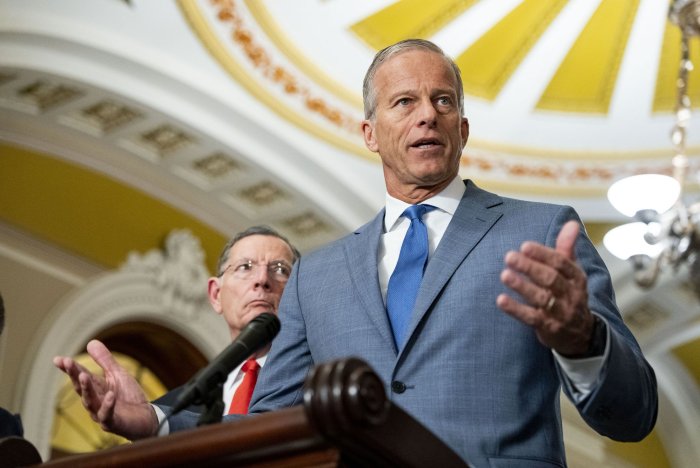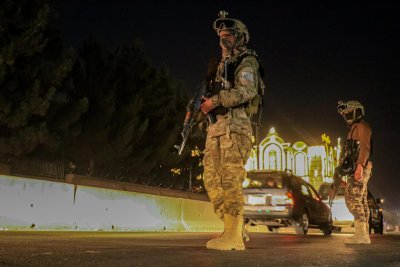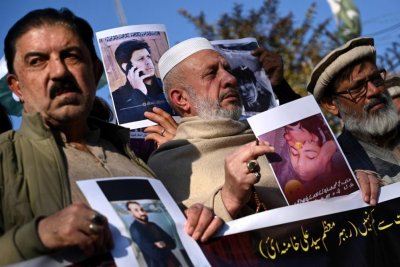Feb. 10 (UPI) — Buckingham Palace said the royal household stood ready to fully cooperate with police weighing an investigation into links between the former Prince Andrew, now known as Andrew Mountbatten-Windsor, and the late Jeffrey Epstein.
“The King has made clear, in words and through unprecedented actions, his profound concern at allegations which continue to come to light in respect of Mr Mountbatten-Windsor’s conduct,” a spokesman for the palace said late Monday.
“While the specific claims in question are for Mr. Mountbatten-Windsor to address, if we are approached by Thames Valley Police we stand ready to support them as you would expect,” he said.
King Charles’ intervention came hours after Thames Valley Police said it was determining whether to act on a complaint by Republic, a group that campaigns for the abolition of the monarchy, accusing Andrew of misconduct in public office and breach of official secrets laws while he was serving as Britain’s trade envoy in 2010.
Republic lodged the complaint on Monday after emails from the latest tranche of Epstein files to be released appeared to show Andrew forwarding Epstein official reports possibly containing commercially privileged information from an October 2010 trip to Singapore, Hong Kong and Vietnam, including confidential information about investment opportunities.
Andrew emailed the reports to Epstein less than five minutes after receiving them himself from his assistant on Nov. 30 with the subject line “South East Asia Visit Reports,” U.S. Department of Justice files obtained by the BBC show.
“We can confirm receipt of this report and are assessing the information in line with our established procedures,” said a Thames Valley police department spokesman.
The alleged incident was just before Andrew has claimed he broke off his relationship with Epstein in early December 2010 but the emails appear to indicate this was not the case as he forwarded Epstein another confidential email on Dec. 24 detailing business opportunities in the rebuilding of Afghanistan‘s war-torn Helmand Province, the region for which Britain was responsible during the war.
The terms under which trade envoys are appointed state that the envoy must not share sensitive, commercial, or political information they are party to with unauthorized persons, that they are bound by the Official Secrets Act and have a duty to keep sensitive documents secure.
“The role of a Trade Envoy carries with it a duty of confidentiality in relation to information received. This may include sensitive, commercial, or political information shared about relevant markets/visits. This duty of confidentiality will continue to apply after the expiry of their term of office. In addition, the Official Secrets Acts 1911 and 1989 will apply,” the document states.
“Trade Envoys are responsible for the protection of any documents they have been provided which might contain sensitive data and ensuring that they are carried, stored, and disposed of in an appropriate manner,” it adds.
Andrew has long denied any wrongdoing in relation to Epstein, including allegations made by the late Virginia Giuffre, but has remained silent over the most recent slew of allegations.
in 2022, he settled a lawsuit alleging sexual assault brought by Guiffre out of court with an undisclosed payment believed to run to eight figures.
Earlier Monday, Prince William and Princess Catherine broke their silence on the scandal, issuing a statement expressing “deep concern” over the latest revelations being unearthed from the Epstein files.
However, the statement stressed that they “focused on the victims” and made no mention of Andrew, who is William’s uncle.
The King has been heckled by members of the public about his brother twice in recent days as he goes about his official duties, most recently on a trip to Lancashire on Monday.
Attorney General Pam Bondi speaks during a press conference at the Department of Justice Headquarters on Friday. Justice Department officials have announced that the FBI has arrested Zubayr al-Bakoush, a suspect in the 2012 attack on the U.S. Embassy in Benghazi, Libya, that killed four Americans. Photo by Bonnie Cash/UPI |
License Photo







